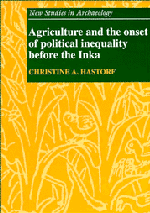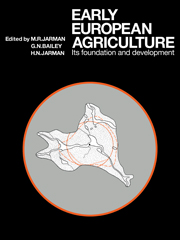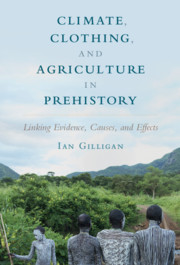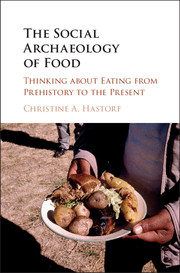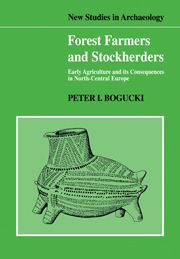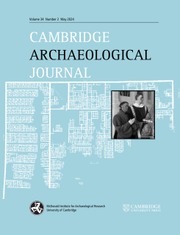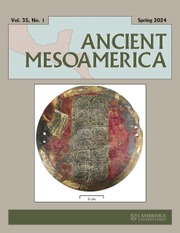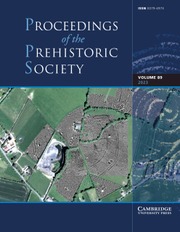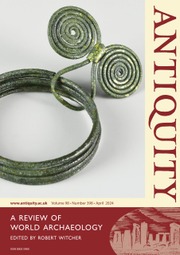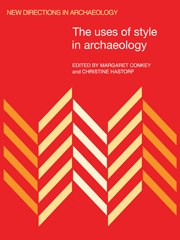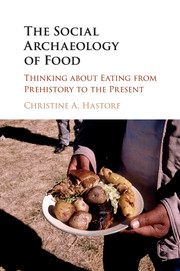Agriculture and the Onset of Political Inequality before the Inka
Archaeologists have long been interested in the onset of political differentiation, and how this can be inferred from the archaeological record. Here Christine Hastorf looks at the nature of power and political diversity in the Andean region of central Peru over a thousand-year period, from AD 200 until the fifteenth-century Inka conquest. She argues that no single model or theory can usefully explain all social change, and that archaeologists should instead focus on a particular region to understand the context of change and why it occurred. She looks at political inequality from a number of different perspectives and suggests a series of 'cultural' principles that shaped political developments. She also traces changes in agricultural production, seeing them as contributing to social and political evolution in the region.
- An important and innovative work on political changes within prehistoric central American civilization; it will be of interest to students of Andean culture and to those concerned with the development of complex societies
- An internationally known young scholar with a deservedly strong reputation, Dr Hastorf's book is well organized and she presents carefully analysed and tightly controlled archaeological data from the area
Reviews & endorsements
'… excellent work … belongs on the bookshelf of any scholar interested in political, social and economic change, and how the archaeological record informs these interrelated, but disinctive, processes.' Antiquity
Product details
January 1993Hardback
9780521402729
314 pages
254 × 180 × 21 mm
0.817kg
31 b/w illus. 31 tables
Unavailable - out of print September 1998
Table of Contents
- List of illustrations
- List of tables
- Acknowledgments
- 1. Introduction: politics, agriculture, and inequality
- Part I. Political Inequality and Economics:
- 2. The onset of political inequality
- 3. The economics of intensive Andean agriculture
- Part II. Socio-Political Change in the Mantaro Region:
- 4. Sausa cultural setting of the region
- 5. Upper Mantaro archaeological site and settlement data
- 6. Regional socio-political structures: Wanka II hierarchical developments
- Part III. Agricultural Production in the Mantaro Region:
- 7. The regional environment and its crops
- 8. Defining modern land-use zones
- 9. Pre-Hispanic agricultural methods and cropping patterns
- 10. Pre-Hispanic production potentials
- 11. Palaeoethnobotanical data, agricultural production, and food
- Part IV. The Negotiation Of Andean Agriculture in Political Change:
- 12. Analysis of change in agricultural production
- 13. Defending the heights
- Appendices
- References cited.

